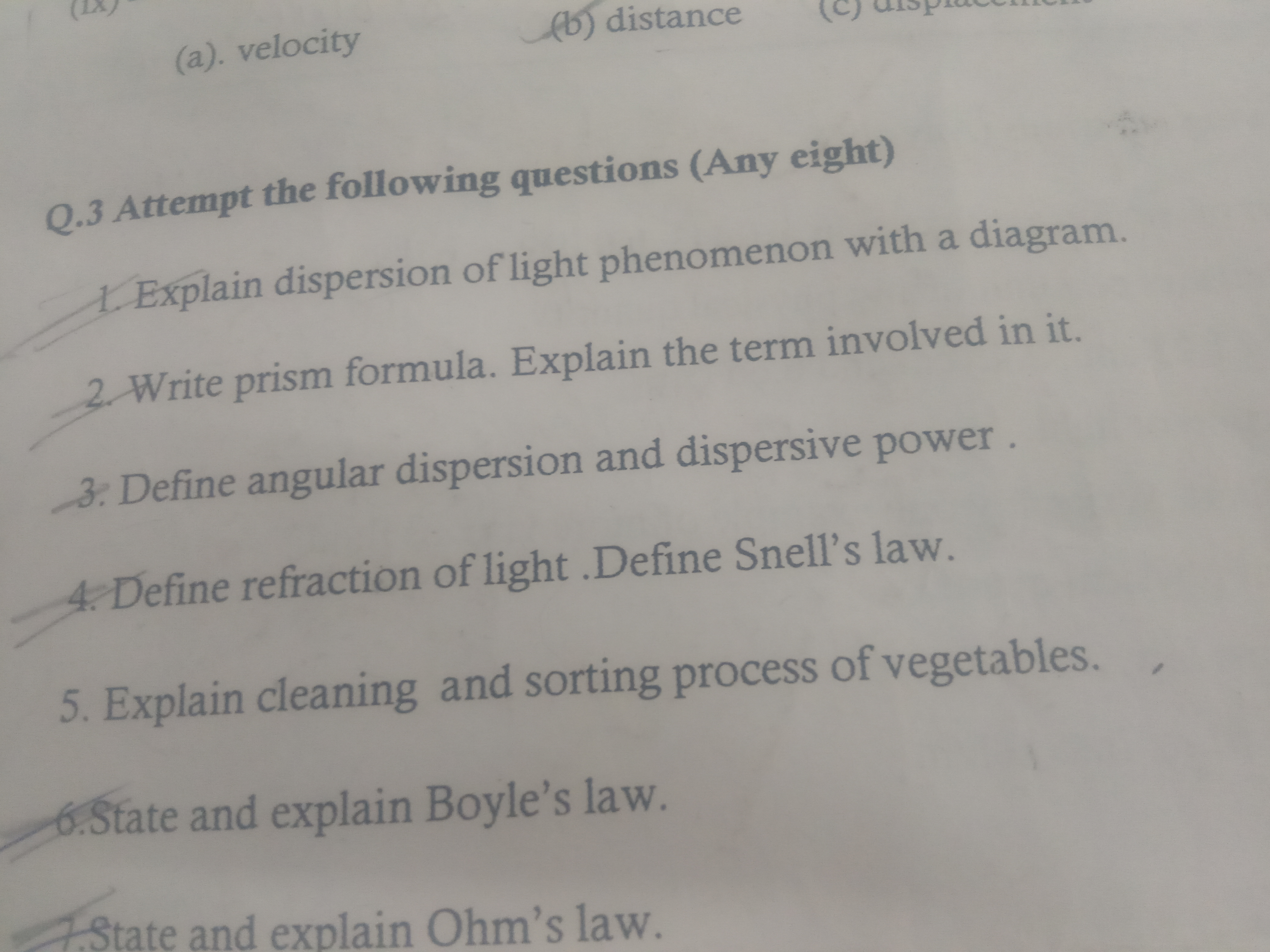Define refraction of light. Define Snell's law.

Understand the Problem
The question is asking for definitions and explanations related to refraction of light and Snell's law, which are key concepts in optics.
Answer
Refraction is light bending between media. Snell's law: n1 * sin(θ1) = n2 * sin(θ2).
The refraction of light is the bending of a light wave as it passes from one medium to another due to a change in its speed. Snell's law defines this relationship: it states that the ratio of the sine of the angle of incidence to the sine of the angle of refraction is constant for a given pair of media. This can be expressed as n1 * sin(θ1) = n2 * sin(θ2), where n1 and n2 are the refractive indices of the media.
Answer for screen readers
The refraction of light is the bending of a light wave as it passes from one medium to another due to a change in its speed. Snell's law defines this relationship: it states that the ratio of the sine of the angle of incidence to the sine of the angle of refraction is constant for a given pair of media. This can be expressed as n1 * sin(θ1) = n2 * sin(θ2), where n1 and n2 are the refractive indices of the media.
More Information
Refraction is crucial in optics, affecting lenses, prisms, and even mirages. Snell's law helps design optical devices by predicting light paths.
Tips
A common mistake is confusing the angles of incidence and refraction. Remember, they're located on either side of the boundary between two media.
Sources
- Snell's Law - Wikipedia - en.wikipedia.org
- Refraction and Snell's Law - Physics Tutorial - physicsclassroom.com
- Snell's Law | Britannica - britannica.com
AI-generated content may contain errors. Please verify critical information